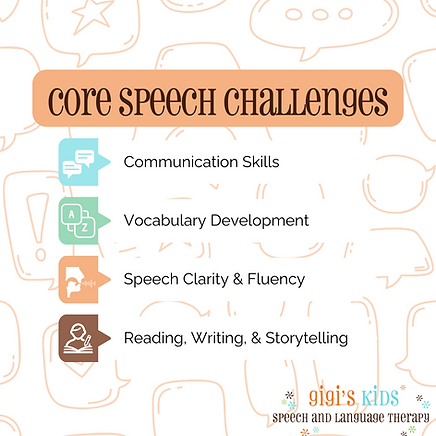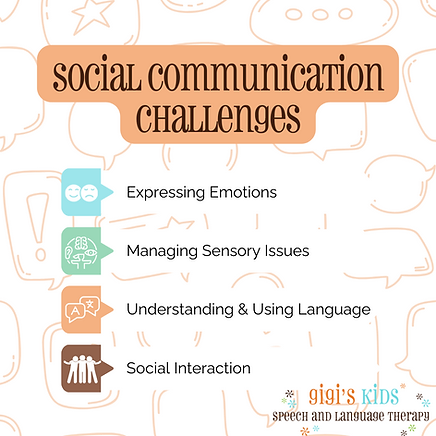
The prevalence of autism is higher now than it has ever been. Many families are raising, loving, and supporting autistic children and are on a continuous journey to find the best resources for their development. At some point in that journey, you’ll probably stumble upon speech therapy and wonder if your child could benefit from seeing a Speech-Language Pathologist (SLP) or speech therapist. The answer is probably “Yes!” but please be sure to look for an SLP that specializes in pediatrics and autism.
Signs Your Child May Need Speech Therapy
-
Echolalia (repeating what they hear)
-
Monotone speaking
-
Using a range of sounds to communicate rather than using words
-
Humming or singing words for an extended period
-
Not speaking at all
-
Repetitive language (like echolalia or repeating words, sentences, or sounds they like)
-
Rigid language (injecting misplaced information into a conversation)
-
Uneven language development (speech and language skills develop but not to the expected level of ability)
-
Poor nonverbal communication skills
-
Difficulty following directions
-
Difficulty responding to their name
-
Difficulty speaking in social situations
-
Indistinct speaking where you can’t understand what they are saying by age four
-
Using one-word sentences
-
Repeating what they hear for a long time
-
Shrieking, grunting, or using other sounds to communicate without words
-
Difficulty tracking and following conversations
Autism Challenges Addressed in Speech Therapy
Core Challenges Helped Through Speech Therapy
-
Verbal Communication Skills: developing better speaking skills enabling them to verbalize their thoughts and needs more clearly and effectively. This will significantly decrease their frustration and reduce the intensity of tantrums and behaviors caused by frustration.
-
Non-verbal Communication Skills: improving non-verbal cues like body language and facial expressions, which are crucial for those who may find verbal communication challenging.
-
Vocabulary Development: expanding the range of words a child can understand and use, enhancing their ability to communicate complex ideas.
-
Speech Clarity and Fluency: children are assisted in articulating words more clearly, thus improving their overall speech fluency.
-
Reading, Writing, and Storytelling Skills: developing literacy skills is often a part of speech and language therapy, supporting overall communication abilities.
Social Communication Challenges with Autism
-
Expressing Emotions: helps children identify and express their emotions in a healthy and understandable way.
-
Managing Sensory Issues: for children with autism who have difficulty with sensory sensitivities, speech therapy can include self-advocacy skills that teach your child what they need and how to ask for it.
-
Understanding and Using Language: enhances the comprehension of spoken and written language, which is vital for effective communication.
-
Social Interaction: social skills training that helps children engage with peers and adults more effectively.
-
Family and Parental Support: providing guidance and support for the entire family on more effective communication between parents and children.


What to Expect from Speech Therapy as a Parent
-
Initial Assessment: The therapist will assess your child’s communication abilities to create a personalized therapy plan.
-
Regular Sessions: Therapy typically involves regular therapy sessions, which might be weekly or more frequent, depending on your child’s needs.
-
Parental Involvement: Therapists often provide strategies and exercises for parents to practice at home, making therapy a collaborative effort.
-
Progress Tracking: Regular evaluations will track your child’s progress and adjust strategies as needed.
-
Support and Guidance: Therapists offer support and guidance to parents and caregivers, helping them understand how best to communicate with their child.
Sources:

Author
Amanda G. Tompkins, MS, CCC-SLP is the founder and owner of Gigi’s Kids Speech & Language Therapy and has been certified by the American Speech and Hearing Association (ASHA) since 2000. With over 25 years of pediatric experience, she has worked extensively in the Bloomfield Hills Schools Deaf and Hard of Hearing program and led a speech therapy department at a center affiliated with autism services. Amanda holds the ASHA Award for Continuing Education (ACE) and continues to share her expertise through trainings for preschools, parent groups, and educators.
